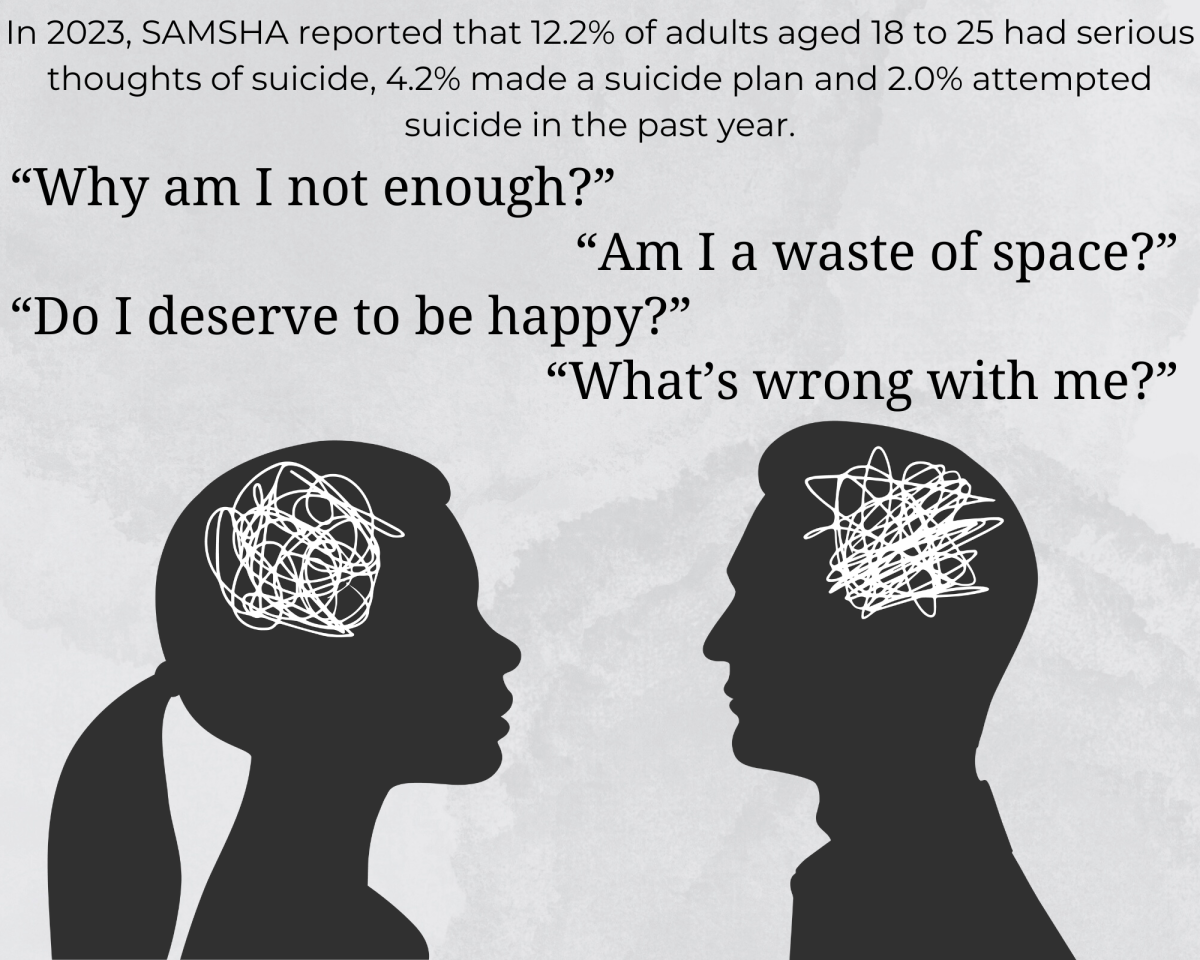Editor’s note: This story includes the discussion of suicide. If you or someone you know needs help, the national suicide and crisis lifeline in the U.S. is available by calling or texting 988. There is also an online chat at 988lifeline.org.
In 2023, the Substance Abuse and Mental Health Services Administration (SAMSHA) reported that 12.2% of adults aged 18 to 25 had serious thoughts of suicide, 4.2% made a suicide plan and 2.0% attempted suicide in the past year. Last Thursday was World Mental Health Day, and while TikTok edits spewing hope and well words remain particularly popular, the suicide rate in this country remains on the rise.
Statistics and talking points are well known. People recognize the root causes of their mental health issues more often now than ever before. More people are going to therapy and more people are on anti-depressants than ever before. Even still, the suicide rate in this country remains on the rise.
In 2019, comedian and actor Dave Chappelle released his special, “Sticks and Stones,” on Netflix. He opened the show by paying homage to famous chef Anthony Bourdain, who died by suicide in 2018.
“We must never forget that Anthony Bourdain killed himself. Anthony Bourdain had the greatest job that showbusiness ever produced. [He] flew around the world and ate delicious meals with outstanding people. That man with that job [committed suicide],” Chappelle said.
In my experience, no matter how hard I laugh when I am with friends, no matter how large my achievements go, no matter how happy I am with my work life, it never correlates to how well I am doing mentally. While I appreciate the affirmations often given, I feel their effect is almost nominal.
It is embarrassing to talk about our own mental health. It is hard to talk to a group about the person who knows us most, ourselves, and the flaws that remain evident to us above all else.
I was once told while in a particularly melancholy state that a friend of mine would go home on his happiest days and wonder why he was not enough. He can command a room, he can relate to anyone, and I have never known anyone not to appreciate his presence. Even still, every night, he would wonder why he was not enough.
I also struggle with feeling like I am not enough. I focus on my flaws at every turn, and I wonder when everything will be okay, as if, for some reason, it simply is not.
I wonder how close my perception of myself is to the vast perceptions of others. I fear my perception is wrong. I know that is dumb to worry about, yet I do it anyway.
I feel if you were to take my name off this article and hand it to someone, minimal gaslighting might convince them that they wrote the prior paragraphs. It is not rare to feel this way, and that is the biggest problem.
I cannot speak for what will fix my own mental issues, but from my perspective, my interactions with others nearly make or break every day when it comes to the feeling of being enough.
Take your friends at face value. Allow them to divulge fully into the weight of their self, and encourage that. Try not to allow yourself to feel like someone is talking too much. Take into account the quirks each person has, and enjoy them.
In a recent conversation with my roommate, I spoke of someone whom I greatly admire and expressed my comfort around them.
“You always seem to respect those who just let you be,” he said.
I was a weird kid in high school. Some would say that has not stopped being the case, and I cannot really blame them for that. I have felt like a burden in many conversations, and I have spent hours overthinking past moments as if that would somehow change the outcome of those events. This will not change anything.
What will make a greater change, however, is a heavier dose of understanding and acceptance. Work to understand those around you and accept the quirks and flaws that make them unique. Allow them to embrace those aspects of themselves.
Talk openly with your friends about goals, where you want to go socially, academically, in your work life and otherwise, and allow them to do the same. Hold them accountable when their actions do not align with who they are, and do it in love.
The mental health crisis we face is a crisis in which, in our lack of knowing our own purpose, we place upon ourselves the idea that we are burdensome or not enough. I feel doing these simple things goes a long way in proving to ourselves and others how much of an absolute lie that idea is.
“And as we let our own light shine, we unconsciously give other people permission to do the same, as we are liberated from our own fear. Our presence automatically liberates others.” – Rick Gonzalez as Timo Cruz, “Coach Carter.”













